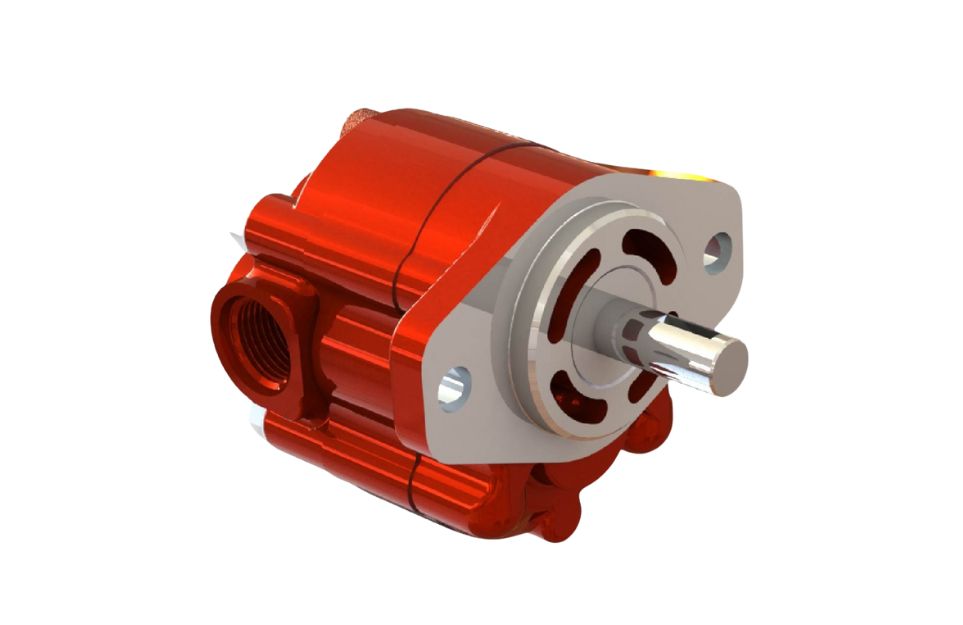Hydraulic Pump
A hydraulic pump is a mechanical device that converts mechanical power into hydraulic energy. It plays a fundamental role in hydraulic systems by generating fluid flow to power various hydraulic components, such as cylinders, motors, and valves. Hydraulic pumps are widely used in industrial, construction, agricultural, and mobile machinery applications. There are several types of hydraulic pumps, each with its own characteristics and applications.

The Key points about Hydraulic Pump:
Function:
The primary function of a hydraulic pump is to generate flow by converting mechanical energy into hydraulic energy. This flow creates pressure, which is crucial for the operation of hydraulic systems.
Types of Hydraulic Pumps:
- Gear Pumps: These pumps use meshing gears to create fluid flow. They are relatively simple, cost-effective, and suitable for moderate-pressure apppcations.
- Vane Pumps: Vane pumps use rotating vanes within a rotor to generate fluid flow. They are known for smooth operation and are suitable for medium-pressure applications.
- Axial Piston Pumps: Pistons move parallel to the axis of rotation. They are efficient and suitable for high-pressure applications.
- Radial Piston Pumps: Pistons move radially from the center of the pump. They are capable of high pressures and are used in specialized applications.
Piston Pumps:
Fixed and Variable Displacement:
- Hydraulic pumps can be classified as fixed or variable displacement:
- Fixed Displacement Pumps: Deliver a constant amount of fluid per rotation.
- Variable Displacement Pumps: Allow for adjustment of the flow rate, making them versatile in different applications.
Pressure and Flow Rate:
The pressure and flow rate generated by a hydraulic pump depend on factors such as the type of pump, size, and speed of rotation. These parameters are critical for determining the pump's suitability for a specific application.
Reservoir and Inlet Line:
Hydraulic pumps are typically connected to a fluid reservoir, and they draw hydraulic fluid through an inlet line. Maintaining an adequate fluid supply is essential for the pump's proper operation.
Hydraulic Fluid Compatibility:
The choice of hydraulic fluid is important, as it should be compatible with the pump's design and materials. Common hydraulic fluids include mineral oil-based fluids, synthetic fluids, and water-based fluids.
Applications:
- Hydraulic pumps are used in various applications, including:
- Powering hydraulic cylinders for lifting and lowering.
- Driving hydraulic motors for rotary motion.
- Supplying pressure for hydraulic brakes in vehicles.
- Providing hydraulic power in industrial machinery and construction equipment.
Maintenance:
Regular maintenance, including checking for leaks, monitoring fluid levels, and inspecting pump components, is crucial for the longevity and performance of hydraulic pumps.
Why Choose Hydraulic Pump ?
The selection of a hydraulic pump depends on the specific requirements of the hydraulic system, including pressure, flow rate, and application. Proper sizing and maintenance are key factors in ensuring the reliable and efficient operation of hydraulic pumps in different industrial settings.
